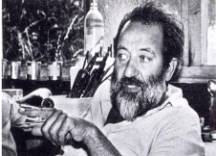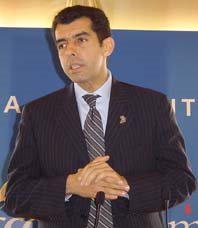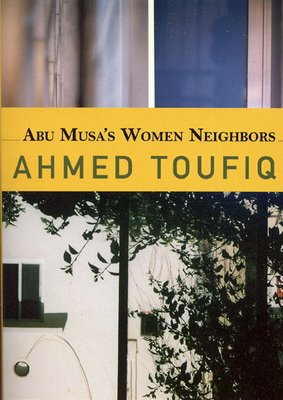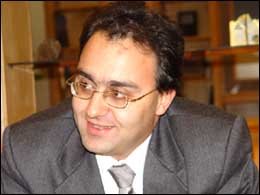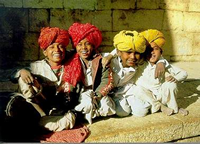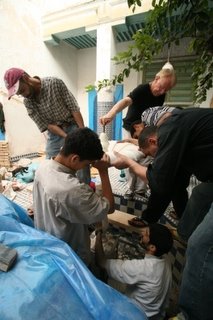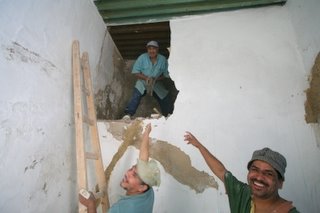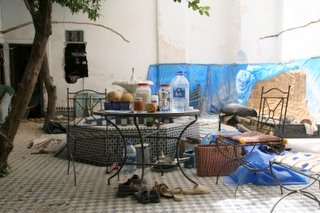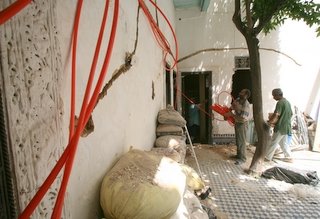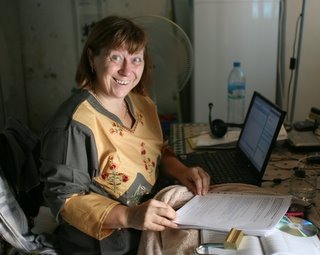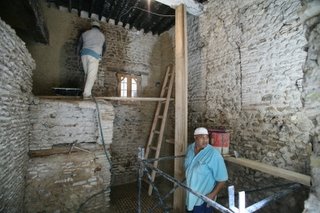Since 1954 it has been the definitive non-fiction account of living in Morocco.
Recently the genre of books about people residing in exotic places has exploded, following the middle-class desire to experience other realities at a deeper level than a mere holiday can fulfil. This has given a new lease of life to books such as A Year in Marrakesh, which has recently been re-released. Although the style appears stilted and formal from a modern perspective, it still resonates with truths about the nature of Moroccan society.
Through the form of a journal, Mayne has captured Morocco in microcosm. His very first encounter is with a guide who tries an elaborate scam, sending him to Marrakesh with a letter of introduction to his cousin in Arabic, promising that Mayne will be responsible for the guide's debts. Mayne succeeds in extricating himself from a tricky situation and takes up residence in a poor part of the medina, or walled city, where everyday life differs little from how it has been lived for hundreds of years. Layers of ritual and superstition underlay an ordinary facade.
Mayne introduces us to characters like Aysha, the matriarch of his derb, or street, who places curses on those who have wronged her; Miriam, a young Jewish seamstress, who is devastated when she thinks she has lost her virginity to an American; Abdeslem, the hapless labourer, condemned to a life of grinding poverty.
There are also eccentric expats, French colonials who have stayed on because their lives are too woven into the fabric of Moroccan culture to extricate, such as Mademoiselle de V, who gives a running update about the love-life of her hen and a turkey.
But the Marrakesh of today is a very different city from when Mayne lived there. In a kind of new colonialism, Europeans have bought up every second house in the old medina, and the expatriate community has become inward-looking – most of their contact with Moroccans is as employees.
In the old imperial capital of Fez, where I am living at the moment, the expats have made little impact.
As the ancient medina is considered more challenging than Marrakesh, the number of full-time foreign residents is less than a hundred, compared with more than 300,000 Moroccan inhabitants. Life can be experienced here as it has for centuries.
The old myths and ways, such as beliefs in jinns who live beneath the earth and come up through the drains, are still present. Mothers dare not leave their babies alone, in case a jinn possesses their spirits. At the stalls where dried lizards dangle, magical cures and curses are sold, there are queues of women.
And the characters who inhabit Mayne's Marrakesh are still recognisable. Despite their attempts to be part of the modern world, many people are restrained by the lack of opportunity.
One local man I know, Yusef, has a degree in English literature and can converse intelligently about James Joyce. Yet he is trapped working in a tiny spice shop. The expats drawn here are a curious bunch who relish the timeless sense of community depicted by Peter Mayne.
Review by Suzanna Clarke.
A Year in Marrakesh by Peter Mayne (Eland Publishing, $29.95). Suzanna Clarke's A House in Fez will be published next year by Penguin.
This review first appeared in Australia in Brisbane's Courier Mail which also ran an interesting review of the Sacred Music Festival in Fez - and included a link back to The View from Fez.

Thank you Courier Mail! It is good to see a mainstream media outlet acknowledging the blogosphere. See their piece here: Sufi nights and daze
Tags: Morocco Fes, Maghreb news





